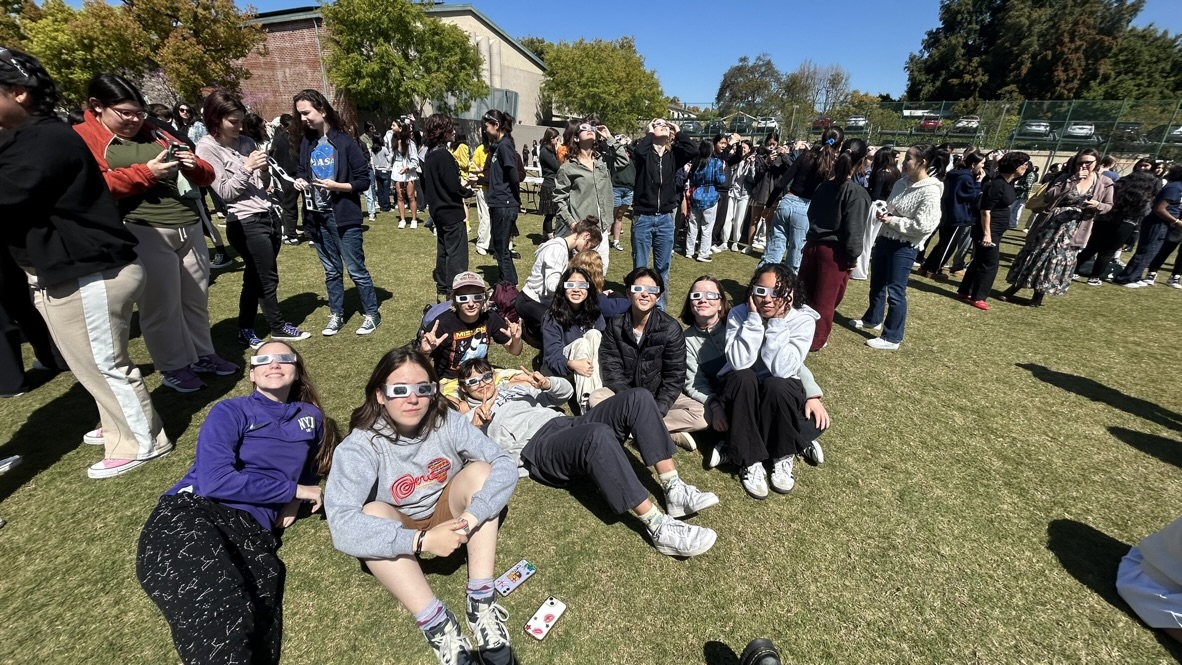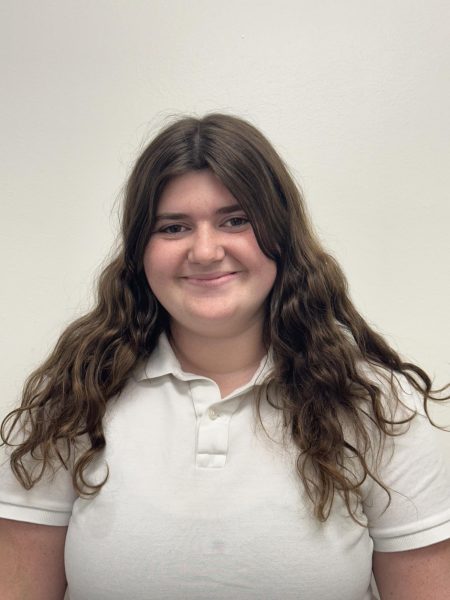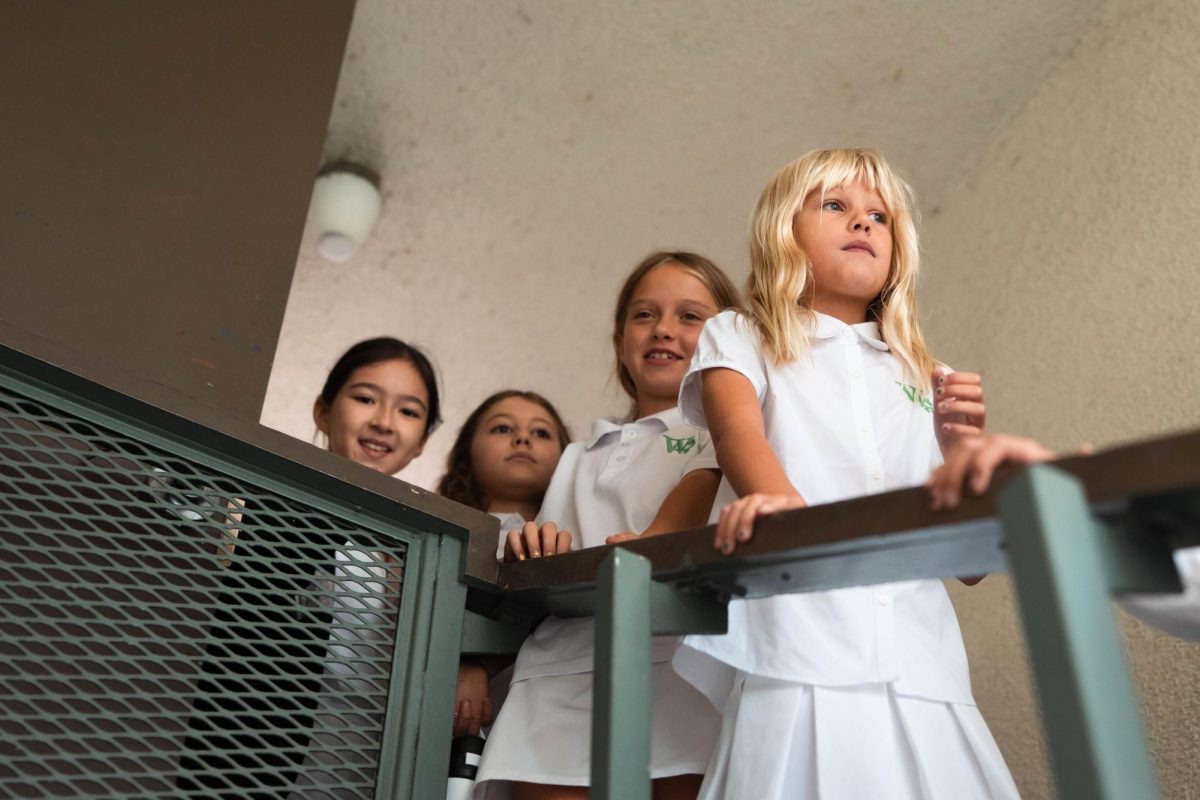A group of fourth grade students huddled together on their knees in the middle of Frank Field. When I approached them, curious about their thoughts on the imminent solar eclipse, in jumbled screams and shouts, they said, “I think it’s really awesome and I’m sad there’s not going to be one for a while,” “I don’t want to go blind,” and “I feel like there’s an orange banana above me.” They were not the only ones excited about the solar eclipse; all across Frank Field, clusters of students and teachers alike held glasses to their eyes and looked at the sky in wonder.
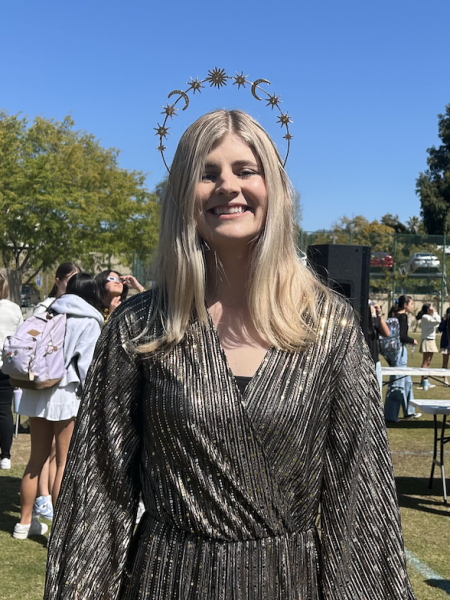
On Monday, April 8, Westridge students and faculty gathered on Frank Field to observe the 2024 solar eclipse. The next solar eclipse, as shared by Upper School Science Teacher Ms. Brooke Surin in her introductory speech, will be in 2044. Ms. Surin played a crucial role in creating programming for the solar eclipse celebration. “We felt like it was super important to see the eclipse even though it is not a total eclipse in California. The next time this will happen in the U.S. will be in 2044, which means that our current fourth graders will be 29 years old,” she said. She continued to emphasize the momentous occasion, saying, “So we felt like this was a significant moment in history for us to be able to witness and celebrate.”
The Science Department obtained special permission from Director of Upper School Mr. Gary Baldwin to offer students a space-themed free dress day. Additionally, the traditional school schedule was altered to position the 30-minute morning band during the eclipse’s most total state in California, which was around 11:00 a.m. When students were released from their B Block classes, they headed to Frank Field and received a pair of eclipse-safe glasses. The Science Department also offered objects with holes, like colanders, so that students could see the crescent-shaped shadows the eclipse produced.
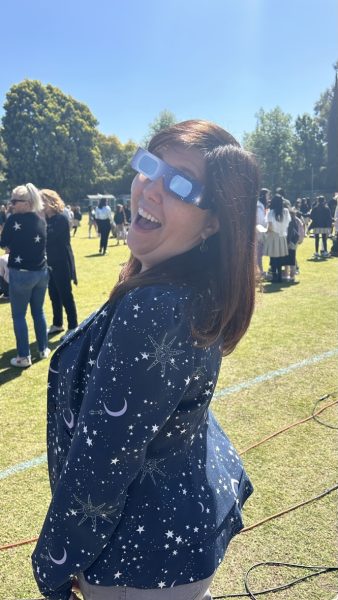
In addition to planning the morning activity on the day of the eclipse, science teachers each taught about the eclipse to their classes. Holly N. ’25, who learned about the eclipse in her Environmental Science and Sustainability class, taught by Ms. Michelle Amos, said, “It was so cool to have discussions about our atmosphere in environmental science, then be able to witness our learnings with so many of my friends.”
Senior Elena R. reflected on celebrating the eclipse with grades 4–12. She said, “Lovely eclipse. So glad we got to experience this on Frank Field.”




























![Dr. Zanita Kelly, Director of Lower and Middle School, pictured above, and the rest of Westridge Administration were instrumental to providing Westridge faculty and staff the support they needed after the Eaton fire. "[Teachers] are part of the community," said Dr. Kelly. "Just like our families and students."](https://westridgespyglass.org/wp-content/uploads/2025/03/dr.-kellyyy-1-e1748143600809.png)






















